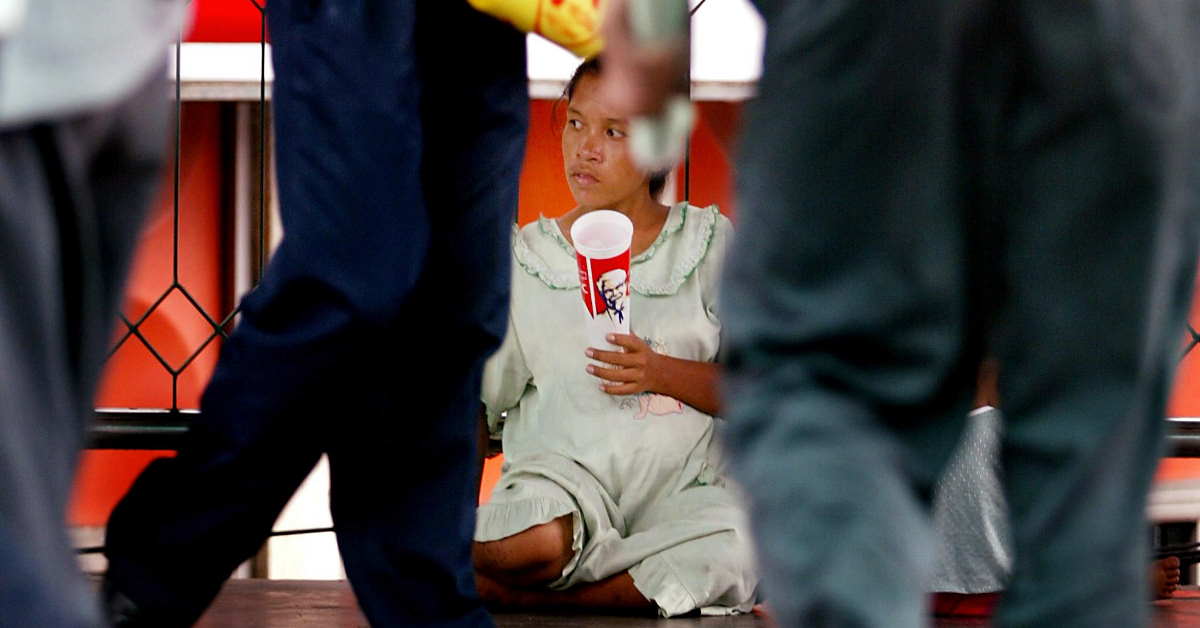Earlier this year, a new-born baby boy was found in a blood-stained, tied-up plastic bag in Singapore. He was still alive in the rubbish bin when authorities made the shocking discovery. Local police are still searching for the parents of the abandoned baby and they could face up to seven years imprisonment or a fine, or both for the crime. This is not the first case of baby dumping in Southeast Asia. In 2019, an abandoned new-born was found covered in ant and mosquito bites after being dumped in a field in Thailand. Local medics stated that the baby girl must have been around a day old or less.
It was reported that in Malaysia, a country notorious for baby dumping – a baby is dumped in the country every three days, with the majority found dead.
Just a few months ago, in Pahang, an east coast state in Malaysia, a cleaning lady at a bus terminal found that one of the toilets was clogged with water mixed with blood. She initially thought that it was because of irresponsible people throwing sanitary pads into the toilet. However, after a closer look, a distinct umbilical cord could be seen stuffed in the toilet. The authorities then confirmed that it was unfortunately the body of a new-born baby. Cases like these are common in Malaysia and are reported frequently in the news.
According to Malaysia’s former Women, Family and Community Development Minister, Dr Wan Azizah Wan Ismail – over 1,000 baby dumping cases were recorded between 2010 and May 2019 in Malaysia. She added that out of all those cases, 64 percent of the babies dumped were found dead. Other than that, 95 of the reported cases were for babies dumped in rubbish bins, while 115 babies were dumped in toilets. In Singapore, 17 abandoned babies were found over the last decade, according to the country’s Ministry of Social and Family Development.
Dr Wan Azizah Wan Ismail noted that among the causes of baby dumping were unwanted pregnancies and teenage pregnancies.
Poor sex education
Media reports stated that 18,000 teenage girls get pregnant in Malaysia each year, and the vast majority of the pregnancies are unplanned. ASEAN countries such as Malaysia and Indonesia have restrictive abortion laws. The termination of a pregnancy is generally only permitted if a medical practitioner deems that continuing the pregnancy poses a danger to the mother's life. Other than the relevant terms, abortion is considered illegal.
Therefore, most pregnant girls are stuck between raising a child with no support or having an illegal abortion that might be harmful to their health. This in turn fuels the problem of rampant baby dumping.
Sex in conservative Southeast Asia is an extremely taboo topic. Sexual health education within ASEAN is presently in the developmental stage where youths are only taught the bare necessities when it comes to sex-related topics under the current curriculum. They are often deprived of detailed sex education for them to make informed decisions.
There is a common misconception among the public whereby introducing sex education to teenagers and children will only encourage them to have sex at a young age. This is a myth that has been dispelled by researchers. According to a report by the United Nations Children's Fund (UNICEF), children armed with information regarding sex education have fewer partners and become sexually active much later in life, than those without.
Sex education includes a comprehensive curriculum covering bodily changes during puberty, sexuality, healthy relationships and biology. The topics of consent and contraception are discussed as well. With the high number of rape and abuse cases, youths need to be given the opportunity to have an open conversation to talk about their sexuality and learn about healthy relationships.
According to media reports, 4.8 percent of Malaysia’s teenagers were sexually active in 2014 and the number rose to 7.3 percent in 2017. Nevertheless, many of them do not use contraceptives. With limited knowledge of sex education, youths do not know about the types of birth control options and the ways to obtain them. In Muslim-majority countries like Malaysia and Indonesia, intercourse outside of marriage is generally frowned upon and considered an offense. Many don’t buy contraceptives out of fear of being caught and judged by the general public.
Efforts by local governments and non-governmental organisations (NGOs) have been carried out to curb baby dumping. Among them is the introduction of baby hatches. Malaysia and China have both introduced multiple baby hatch locations for mothers to abandon their babies anonymously in a safe place. Malaysia also introduced a general hotline called the "Talian Kasih" (Online Love) for teenage girls and women with unplanned pregnancies who need help.
Like the saying “prevention is better than cure”, authorities and parents need to acknowledge that abstinence doesn’t work 100 percent of the time and youths need to be equipped with information to make proper decisions. Many also argue that decriminalising pre-marital sex and creating a non-judgemental support system are crucial in tackling the problem of baby dumping in Southeast Asia.
Related articles:
